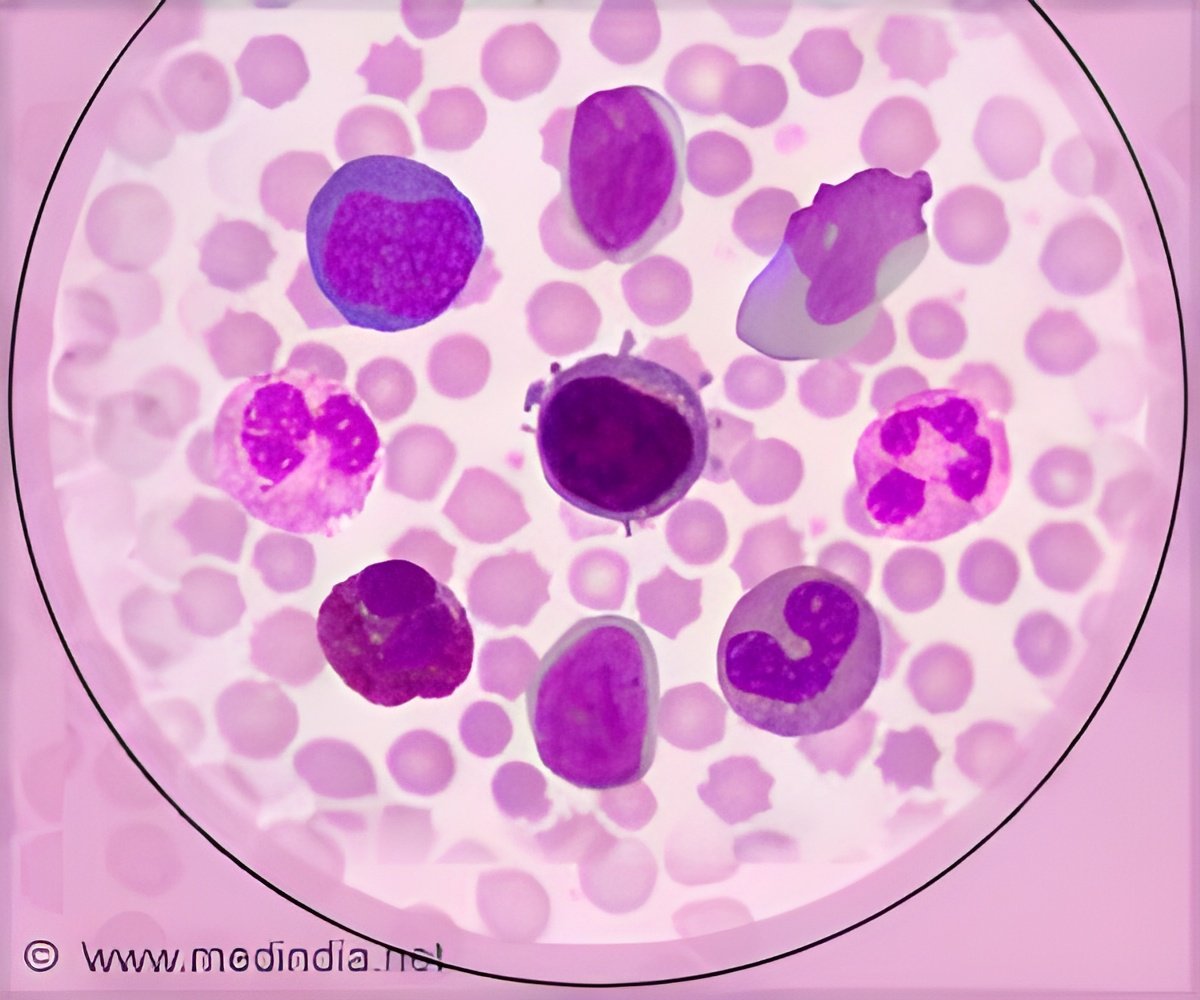
‘E1912 study showed that the ibrutinib-rituximab combination not only provided better leukemia control, but also prolonged life with fewer side effects compared to the standard chemotherapy/immunotherapy of fludarabine, cyclophosphamide, and rituximab.’
Read More..Tweet it Now
The E1912 trial was sponsored by the National Cancer Institute (NCI), part of the National Institutes of Health. The importance of these findings is reinforced by the breadth of participation of academic and community institutions that together completed this innovative study.Read More..
CLL is one of the most common types of leukemia in adults. It typically occurs during or after middle age and rarely occurs in individuals under the age of 40. Ibrutinib (Imbruvica®, Pharmacyclics, an AbbVie company/Janssen) is a Bruton’s tyrosine kinase (BTK) inhibitor that interferes with the survival of lymphocytic leukemia cells.
Rituximab (Rituxan, Roche/Genentech, and generics) enhances the ability of the body’s immune system to destroy the cells. The FDA had previously approved ibrutinib as monotherapy, in combination with obinutuzumab, or in combination with bendamustine and rituximab (BR) for patients with CLL.
In addition to ECOG-ACRIN, the E1912 trial represents a collaboration with the Alliance for Clinical Trials in Oncology, NRG Oncology, and SWOG cooperative groups in the NCI’s National Clinical Trials Network. These groups participated in the design and conduct of the trial and supported the enrollment and treatment of the 529 patients.
The trial met its primary endpoint of an improvement in progression-free survival (the length of time patients live before their disease worsens). The combination also improved overall survival, the trial’s secondary endpoint. In general, patients in the ibrutinib-rituximab arm were less likely to experience serious side effects than those in the standard treatment arm.
Advertisement
Dr. Shanafelt presented results from an extended follow-up analysis of patients in E1912 at the ASH annual meeting in December 2019. The analysis provided new safety and efficacy information on the patients in E1912 who completed six months of combined ibrutinib plus rituximab therapy and continued to receive ibrutinib alone for as long as it remained effective. The analysis, based on a median follow-up of 48 months, reported that 73% of patients in the ibrutinib plus rituximab treatment arm remained on ibrutinib.
Advertisement
Overall survival also continued to favor the ibrutinib plus rituximab arm (HR=0.34, 95 percent CI, 0.15-0.80; p=0.010).
The only pretreatment characteristic that predicted discontinuation of ibrutinib for a reason other than progression was the number and severity of health problems other than CLL.
E1912 clinicaltrials.gov record: NCT02048813
Source-Eurekalert










